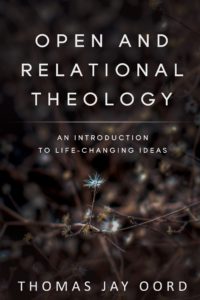God’s Omniscience Grows
Open and relational thinkers say the future does not exist. Because it does not, God can’t know with certainty what will happen in the future. Does this contradict the idea God is all-knowing?
In Open and Relational Theology: An Introduction to Life-Changing Ideas, I say that God can’t foreknow with certainty everything that will occur. Does this mean God isn’t omniscient?
God is All-Knowing
If the future is open and God can’t be certain what will happen, is God ignorant?
No. Open and relational thinkers believe God knows everything.
God knows all that can be known. God knows all that happened in the past, all that’s happening in the present, and all possibilities for the future. God knows all mathematic and logical knowledge too. God knows what it means to be God. And so on.
God knows all.
No one — not even God — can know what’s unknowable. If something isn’t knowable, it can’t be known. That’s common sense. There is no there there.
God Learns
But… and this might shock you… God can learn.
In each moment, additional information is generated in the universe (and in other universes, if they exist). God learns this new information as soon as it’s knowable. God is like an all-absorbing sponge or all-encompassing database who inputs all information available.
Because God learns new information, God knows everything there is to know and adds new knowledge to the divine memory.
Let me illustrate. As I type this sentence, I’m deciding which keys to press and words to type. Before I started typing, God knew all the keys and words I might choose. But God wasn’t sure which ones I would choose until I did the choosing. As I decide which keys to push and what words to add, God learns my decisions.
God’s omniscience grows.
Add to my current decisions all the decisions made by deciders everywhere and all random events and all occurrences at the micro-levels of existence and everything else knowable… and you’ve got a mind-boggling amount of knowledge!
The One who knows all includes it all, moment by moment. God’s knowledge doesn’t cause things to occur, as I’ve explained elsewhere. But God learns and grows in knowledge, and yet knows everything knowable in each moment.
I find more attractive the idea God’s omniscience is dynamic rather than eternally static!


Comments
I have a feeling that you are just trying to be controversial. My God knows all things. It might be the future for us but to God there is no time and so no past and no future as we know it. But then you are theologian and I am not so maybe, just maybe , you are right.
Thanks for responding, Dennis. I’m not trying to be controversial. I’m just trying to make sense of life, the Bible, and what it means to know something is true. Like you, I think God knows all that’s possible to know.
Short and clear. Thanks, Tom! For me, it is still the position that makes the most sense of the Scriptures and how they describe God’s dealing with mankind. I usually add, God also knows what He intends to do in the future. And knows us through and through, better than we know ourselves.
So when you talk about how God would would not know the exact words you would use, I agree. But He has a pretty good idea of what you were going to write, knowing you intimately. In fact, I think even I could make a pretty good guess 🙂
I think you’ll be pleased to know that, contrary to popular belief, many renowned physicists also claim that the future doesn’t exist yet; they are: George Ellis, with his Crystallizing Block Universe, Richard Muller, author of “Now: the Physics of Time” and John Cramer & Ruth Kastner, with the transactional interpretation of quantum mechanics.
Thanks for your kind note. I know of some of these physicists (I’m personally friends with George) but not all.
I agree, Hans!
So I’ll play the devil’s advocate here. How do we truly know as humans that God knows everything? Yes, God is great but perhaps he has limited his knowledge like he has limited his power to intervene. Really, all we are doing is postulating what God might be able to do/is like without any sort of face-to-face encounter with him that “empirically” demonstrates our theology.
Good queistuon, Steven. I don’t know. It’s speculation.